
Manic Depression or bipolar disorder is a mood disorder with intense mood swings. The mood swings can happen suddenly or gradually and vary from mild to extreme, and can last for hours at a time. Rapid cycling is the term for frequent mood swing interval. Mood swings can be separated to major or clinical depression, mania or extreme elation. People with manic depression are known to have thinking disturbances and distorted or impaired perception in social life. This condition can cause few days long insomnia followed by hallucinations, grandiose delusions, paranoia, rage and psychosis.
Bipolar disorder is genetic in nature. Similar to other mood disorders the exact cause is unknown. It usually manifests in age span of 15 to 24 and lasts a lifetime. Rare cases are seen in children or adults over age 65. Severity of symptoms varies with individuals who have bipolar disorder. While some people have a few symptoms, others have many that impair their ability to work and live a normal life. Untreated manic depression has high chance of relapse.
Symptoms of Manic depression
Clinical depression is marked by eating disorders, fatigue, lack of energy, feeling helpless, guilty or worthless, pessimism, sadness, sleeping disorders, anxiety, irritability, suicidal tendencies.
Mania symptoms in manic depression (bipolar I disorder)
Manic depression mania is characterized by racing or disconnected thoughts, notable increase of energy, increased volume or speed of talking, awkward social behavior, irritability, notions of grandeur, increased sexual desire, severe insomnia.
Mania is the main characteristic of bipolar l disorder, while bipolar II disorder has milder elation periods called hypomania in combination with major to mild depression. Difference between mania and hypomania is in severity.
Hypomania symptoms in manic depression (Bipolar II Disorder)
Symptoms that are characteristic for hypomania are lack of need for sleep, increased confidence, energetic and elated mood, increase in productivity and creativity, extreme dedication to projects at home or at work, recklessness and needless risk taking, increased libido.
Diagnose of manic depression
Manic depression is mostly based on doctor’s evaluation. Lab tests and x-ray can be used to rule out the presence of serious illness that affects mood. The doctor performs a physical exam and checks for previous personal or family medical history. The doctor may also be willing to consult close family members that can help identify elated moments.Mania has extreme influence on thoughts, social behavior and judgement and is known to cause problems in social or work life. Therefore early diagnose and treatment is very important.
Treatment of manic depression
The treatment can include various mood stabilizers like lithium, antipsychotics and anticonvulsants. For boosting the depressive moods, antidepressants may be prescribed in combination with mood stabilizers and stimulants to keep a balanced state of mood.


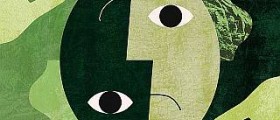


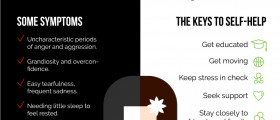
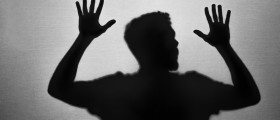




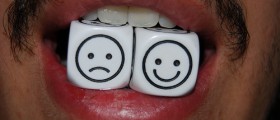

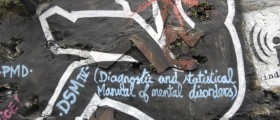


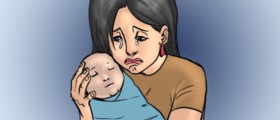
Your thoughts on this
Loading...